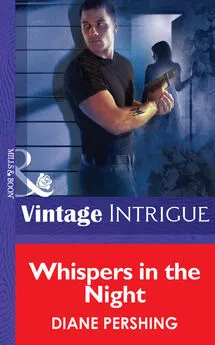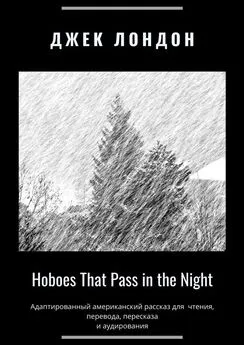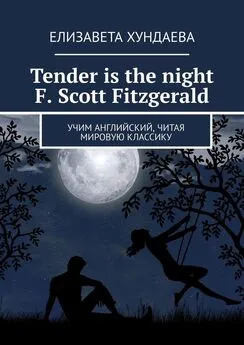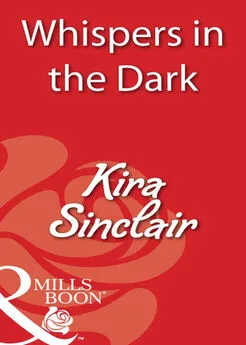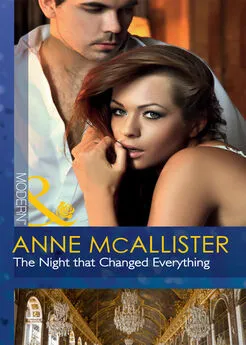Diane Pershing - Whispers in the Night
- Название:Whispers in the Night
- Автор:
- Жанр:
- Издательство:неизвестно
- Год:неизвестен
- ISBN:нет данных
- Рейтинг:
- Избранное:Добавить в избранное
-
Отзывы:
-
Ваша оценка:
Diane Pershing - Whispers in the Night краткое содержание
Whispers in the Night - читать онлайн бесплатно ознакомительный отрывок
Интервал:
Закладка:
Fitzgerald ran one huge hand over several of the dark gray and dusty brown stones that made up the entire facade. “Solid workmanship,” he said, and she detected a flicker of admiration—an actual emotion?—on his face as he did. “Do you know anything about it?”
“Just what’s in the brochure. It’s native fieldstone and was carved by Italian masons,” Kayla explained, “brought to America in the mid 1890s for that express purpose. A wealthy widow, Honoria Desbaugh, built it to honor her husband. For years, it was run by some monks, an offshoot of a sect called the Brothers of the Sacred Nazarene. Our cabin was their dormitory. One by one, the monks died out, and the place was pretty much abandoned till the 1920s, when Walter’s family bought the entire property.”
“The church is a real tourist attraction in the summer,” Hank added. “Good for the town.” He pulled open the thick wooden front door, and they followed him in.
As it had before, the cool quiet of the church’s interior had the effect of a balm on Kayla’s nerves; even if she hadn’t been aware of being tense, the easing of the tightness in her shoulder muscles and abdomen was a dead giveaway. She stood in the nave and breathed deeply of the air—it had the slightly musty but clean smell of damp earth and old caves.
The calm lasted seconds only, because Paul Fitzgerald came up to stand beside her, his hands in his back pockets as he peered upward, his gaze taking in the high ceiling and its heavy beams. She couldn’t help noting his strong neck and prominent Adam’s apple. The filtered sunlight streaming through the stained-glass windows cast shadows on the sharply defined planes of his face.
Good Lord, she thought, he was like some kind of stone monument himself.
“This has been kept up,” he said.
Hank, still standing near the door, said, “Mr. Thorne paid for the restoration years ago,” to which Kayla added, “Walter set up a fund to keep it up in perpetuity.”
“Religious, huh?”
“Not particularly,” she said. “He intended the church to be nondenominational, sort of a general, all-purpose place to worship whatever god you believe in.”
He angled his head to gaze down at her. His pale eyes were grim and joyless, and spoke of bone-deep bitterness. “What if you don’t believe in any kind of god?”
“Doesn’t everyone need to believe in something?” she asked him softly.
His gaze remained on her face for another moment or two, revealing nothing of whatever was going on inside him. She felt, again, her blood running cold, signaling her dread of violence. The bleakness in Fitzgerald’s eyes did that to her.
Then he shrugged and looked away. “If you say so.”
He walked over to one of the walls, and as he had outside, rubbed his hand over the stone. His attention caught by something near his feet, he bent over and scraped a nail against a floorboard. “This must be it, Hank. The leak’s under this area of rotting wood.”
“Okay.” Hank headed for a small side door near the altar. “I’ll just check in the basement, see where that water’s coming from. You two look around, I’ll be back in five minutes or so.”
Kayla watched as Fitzgerald ambled past the pews and to the altar. On the rear wall were five wooden statues of saints, each about four feet high. He studied them silently for a moment. What was he thinking? she wondered. Had he ever had any beliefs?
Why couldn’t she shake this need to understand this emotionally cutoff man? He was none of her business, especially as she would be sending him on his way as soon as they got back to the house.
Annoyed with herself, she followed his progress as he strode over to the east wall and, one by one, perused the stained-glass windows. Several were dedicated to people who’d passed away, dating from the early 1900s to the 1970s. Desbaughs had given way to Montgomerys, who’d given way to Thornes. She joined him at her favorite, an exquisite rose window, its colors pale pink to deep red and all hues between. Along the bottom of the window ran a green-leafed vine, above it the words “Entwined forever.”
“Isn’t it beautiful?” she said as they both gazed at the fine craftsmanship combined with a delicate sensibility.
He didn’t reply for a moment, then he nodded. “Yeah.”
“I’m having a window made in honor of Walter.”
Again, he made no reply at first. Then he said, “Good for you.”
Was he being sarcastic? She had no way of knowing.
They were near the rear of the church now and he pushed open the back entrance door. Sunlight poured in, obliterating the shadows and sense of mystery in the old building.
Fitzgerald pointed ahead. “What’s that?” he asked, but didn’t wait for her answer, striding out the door toward what she knew was the memorial arch.
By the time she’d caught up with him, he’d already covered the cracked paving stones that led to the monument, a tall, narrow archway made up of small, ivy-covered stones. He stood beneath it and gazed out. Her instinct was to join him beneath the high curving shrine, appreciate the view, tell him a story or two about the arch’s history.
But the thought of standing under it, next to Paul Fitzgerald, made her distinctly uneasy. She remained several feet behind and to the side of it.
A sudden wind came up, the way it did here in the mountains, and she had to raise her voice to answer his previous question. “It’s called the Memorial Arch,” she told him, “in honor of the Native Americans who used to roam these mountains. Mrs. Desbaugh had some Mohawk blood in her, and asked that it be part of the original construction.”
He looked back at her, a slight frown forming between his thick brows. “Am I breaking some kind of law by standing here?”
“Not at all.” The wind whipped her ponytail around to smack her in the face, and she pushed it away.
“But you’d rather I didn’t.”
He was reading her unease. “No, no, it’s not you. I’m just being…superstitious.”
“There a curse or something?” he asked sardonically, and she knew he was scoffing at the possibility. “Something bad happens if you stand under this thing?”
“Not at all. People stand under the arch all the time. Sight-seers, couples getting married. It’s fine.”
She was being silly. But, in truth, she was actually afraid to stand under the arch with him. At the same time, she was experiencing this unexpectedly strong pull toward the ancient monument, a sense that she needed to be under there, next to Fitzgerald.
What was that about? And why the fear? Nothing popped into her head. She sighed, shook her head. The only way she’d get the answer was to—as she’d learned—go toward it and find out. Sometimes she yearned to return to the days of being the little girl who hid from life, but her path had gone in a different direction. For better or for worse, she was a woman who faced and fought her fears.
Shoulders squared with determination, Kayla took the few steps that had her standing side by side with Paul Fitzgerald, under the arch. The minute she got there, the wind died down, leaving her with that same vague sense of unease.
Also a nearly palpable awareness of—darn it!—that connection again to the man by her side, the way she’d felt earlier, back in the kitchen. Only it was stronger now, as if there was some invisible wire strung between them, with a jolt of electricity passing through it.
She knew that she and Paul Fitzgerald made an all-too-intimate picture: a man and a woman, surrounded by history and tradition, enveloped by a monolith that marked sacred ground, one used in ancient ceremonies of all sorts…including weddings.
Her heart stuttered. Oh, God, was she doing a you-are-my-destiny head trip? Because if she was, then fate had a major sense of humor, pairing a grieving widow with an embittered ex-con who looked like he ate small children for breakfast.
Turning her head, she studied his profile. The slight hook to his strong nose brought back her initial impression of him. “Do you have any Indian blood?” she found herself asking.
He turned to look at her, his features carefully neutral. “Cherokee. My grandmother.”
“I thought so.” A grandmother he’d loved, she just knew it.
Kayla was always interested in family stories; ordinarily she would ask him to tell her about his grandmother, but there was that don’t-go-there quality to Fitzgerald that discouraged questions. As though to prove her point, he turned away from her and stared out at the view again, which, from this angle, offered mostly treetops, and beyond, Shawangunk Ridge, with its single soaring pine tree reaching high into seemingly endless clear, blue skies.
The only expression on his face was a slight downturn of his mouth. “Nice,” he said.
“Something of an understatement,” she countered wryly.
“There you are,” Hank said from behind them.
She nearly jumped with surprise as he came up to them, wiping his hands on a large white handkerchief. “I can fix that leak in the basement. No problem.”
Kayla stepped out from under the archway and faced the older man. “I’m sorry, Hank,” she said. “Really I am. I already told you on the phone that Walter was adamant when it came to the church. Any repairs, anything that needs to be done, is to be performed by a restoration expert. I’ve called the man Walter used, and he’ll be up in a couple of days to look it over and give me an estimate. I just wanted to see if there is something I should do until then.”
Stubbornly, Hank shook his head. “Those people cost a lot of money. Hell, me and Paul and a couple of my guys could do it just as well, cost you a third of what them fancy experts charge.”
She could see that she was dealing with a bruised ego, and she felt badly. Hank had always been kind to her and helpful to Walter. “If it were up to me…” she said, then shrugged with an apologetic smile. “It’s out of my hands. It’s actually in the will.”
Again, he shook his head. “Damn foolishness,” he muttered. Then, resigned, he stuffed the soiled handkerchief into his back pocket. “Guess I can’t fight a will, now, can I?”
“How about we go back to the house and take a look at your list?” This abrupt change of subject came from Fitzgerald, who didn’t wait for a reply before taking off, around the church rather than through it.
As Kayla and Hank followed, she was thinking, once again, that it was time to dismiss him. Just because he’d admired the church didn’t make him someone she wanted around her all day. Besides, she reminded herself, she had way too strong a reaction to him, equal parts attraction and repulsion, neither of which she needed in her life at the moment. It was most likely the nurse in her that was stirred up by the pain she sensed beneath the man’s steel surface. He might need healing, but he wasn’t about to get it from her.
“Um, Mr. Fitzgerald?” she began as the three of them strode up the driveway to the house.
“Call him Paul,” Hank said genially.
Before she could go on to tell him that she wouldn’t be needing his new recruit, Fitzgerald had taken the list of chores from Hank, glanced at it and headed for the drainpipe that ran down the side of the house near the kitchen door. He knocked on the metal, then said, “I think it would be better to replace this instead of repairing it. I’ll clean out the rain gutters first and make sure there are no rats making nests. Or snakes.”
If he could have invented a better conversation-stopper, Kayla had no idea what that would be. “Snakes?” she squeaked.
Читать дальшеИнтервал:
Закладка:
